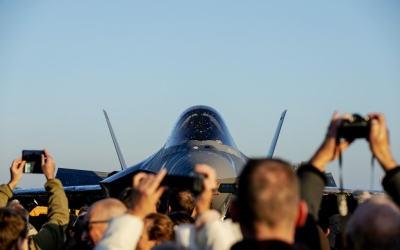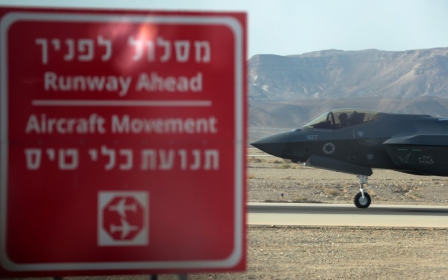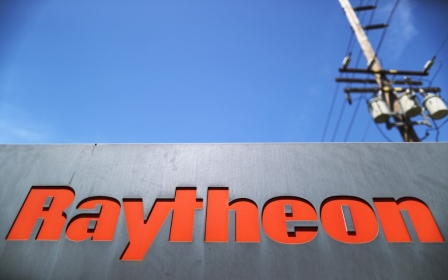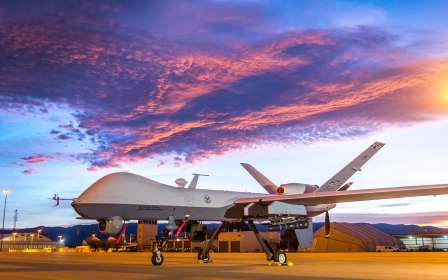Trump administration approved UAE arms sale hour before Biden inauguration
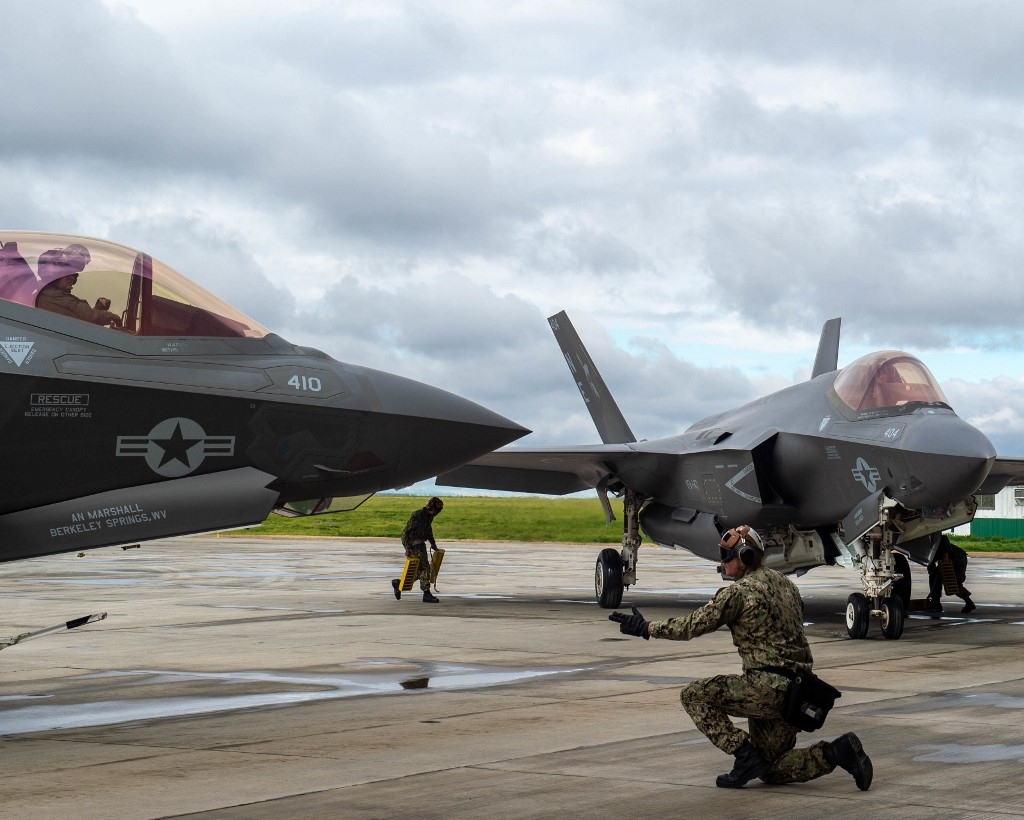
As US President Joe Biden was preparing to be sworn in, his predecessor was working on a last-minute deal to further solidify terms of a controversial arms sale to the United Arab Emirates, according to a think-tank that is suing the administration.
Former President Donald Trump signed a letter of agreement (LOA) with the UAE to purchase as many as 50 F-35 warplanes and 18 armed drones in the final moments of his presidency.
The LOA solidifies the terms of the weapons sale between the two countries.
'It puts the Biden administration in a very odd position to either stop the deal or have the American government contribute to an escalating arms race in the Middle East'
- Justin Russell, NYCFPA
Before taking office, Biden had said he planned to re-examine the $23bn UAE arms deal, which is being challenged in a lawsuit by the New York Center for Foreign Policy Affairs (NYCFPA).
The think-tank's principal director, Justin Russell, told Middle East Eye that Trump signed the LOA an hour before the inauguration, forcing the incoming administration into a difficult dilemma.
New MEE newsletter: Jerusalem Dispatch
Sign up to get the latest insights and analysis on Israel-Palestine, alongside Turkey Unpacked and other MEE newsletters
"It puts the Biden administration in a very odd position to either stop the deal or have the American government contribute to an escalating arms race in the Middle East," Russell said.
The Biden State Department declined MEE's request for comment on reports concerning the last-minute agreement, but in October, Biden's then nominee for secretary of state, Antony Blinken, told reporters that the sale was "something we would look at very, very carefully".
'Inflict harm in Libya and Yemen'
The F-35 jets are a major piece of the $23bn weapons deal, which was penned on the sidelines of Abu Dhabi's normalisation agreement with Israel.
The UAE has long sought the means to purchase the US's F-35 fighter jets, but had failed to do so until the Trump administration became adamant about adding Middle East normalisation deals with Israel to its foreign policy legacy.
Other than Israel, the US had previously barred any country in the Middle East from purchasing F-35s out of concerns that the military equipment would damage Israel's qualitative military edge (QME), which is enshrined and required by US law.
Israeli Prime Minister Benjamin Netanyahu at first said he was not aware that the US had worked a side deal with the UAE in its push for Abu Dhabi to sign the normalisation agreement, but has seemed to come around to the prospect.
The nearly $3bn sale of 18 MQ-9 Reapers - armed drones - is also a significant order, with sources familiar with the situation telling Reuters that it would be the second-largest sale of US drones to a single country.
The Washington Post also reported that the munitions package included thousands of Mark 82 bombs, guided bombs, missiles and other arms.
Legal challenge
In December, two attempts to block portions of the UAE sale were shot down by Senate Republicans despite growing calls from anti-war and human rights groups to halt it.
Ahead of the failed Senate vote, lawmakers - mostly Democrats - underscored Abu Dhabi's role in the conflicts in Libya and Yemen as well as its poor human rights record at home.
"Unfortunately, there is significant potential for the F-35 aircraft and drones to be used to inflict harm in both Libya and Yemen that will further destabilize the Middle Eastern region," NYCFPA highlighted in a statement on Thursday.
"There is also the possibility of creating an arms race in the region while inheriting new security threats due to the potential sharing of US military technology with nations like Russia and China," it said.
NYCFPA filed a suit in the US District Court for the District of Columbia on 30 December, claiming that the $23bn arms sale was rushed through without meeting proper legal requirements.
Specifically, the suit targeted the secretary of state, then Mike Pompeo, and the State Department. However, since the suit targets the office of the secretary, it will be levied against the incoming secretary who will likely be Blinken.
The suit alleges that the sale violates the US Arms Export Control Act (ACEA), which gives the US president authority to control the import and export of defence equipment. Under the law, Congress has the right to block weapons sales - but its approval is not needed.
'Rewarding the UAE's troubling behaviour'
Among other things, ACEA requires that the executive branch has determined that the sale "will strengthen the security of the United States and promote world peace".
While the State Department under the former administration had said the deal meets such a requirement, it has provided little evidence, which it is obligated to do under the Administrative Procedure Act (APA).
In Thursday's statement, NYCFPA said that its suit represented the "final opportunity to block the arms sale".
"The [Trump] administration not only disregarded said lawsuit but rewarded the UAE's repetitive and troubling behaviour," the group said. "For the administration to advocate for peace in the Middle East but continue to overlook crucial research and act in an opposite ideology is alarming."
During its last few weeks in office, the Trump administration pushed through a whirlwind of arms deals with Middle Eastern countries, including the approval of $290m in bombs to Saudi Arabia on 29 December.
On the same day, the State Department also announced a $4bn sale of Apache helicopters to Kuwait, $104m in defence equipment to outfit the plane of Egyptian President Abdel Fattah el-Sisi, and another $65.6m in precision targeting equipment for Egyptian warplanes.
Middle East Eye delivers independent and unrivalled coverage and analysis of the Middle East, North Africa and beyond. To learn more about republishing this content and the associated fees, please fill out this form. More about MEE can be found here.


